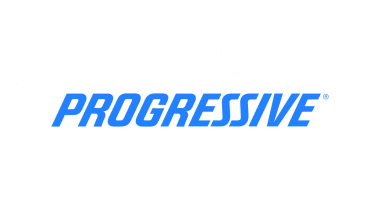When a master policy’s deductible or damage exceeds that policy’s coverage limit, condo or HOA homeowners who do not have loss assessment coverage may be required to pay those costs out of cash. Therefore, this article will explain how loss assessment coverage work. Their Coverage, Condo, limit, cost, and Loss Assessment Coverage Florida
Loss Assessment Coverage
In the event of an accident in a common area of the condo complex, such as the lobby, stairwells, pools, outdoor areas, and more, loss assessment coverage is an optional addition to your condo insurance policy that can help. Usually, the homeowner’s master insurance covers accidents that happen in these shared areas. But if the damage is too high, the condo residents may have to pay for it, even if they had nothing to do with it. You might not have to pay for these kinds of costs out of your own pocket if you add loss coverage to your condo insurance.
What Does a Loss Assessment Cover?
A loss assessment can assist property owners in a shared community in paying for:
- Liability cost
- Medical expenditure
- Property damage
If damages to shared areas exceed the limits of your HOA’s master policy, you can rely on this endorsement to help cover the costs. Note that loss assessment coverage does not cover property improvements such as repaving roadways or installing a new roof on a clubhouse.
#1. Damage to the Structure
If the HOA’s master policy is insufficient to cover the cost of roof repairs caused by a storm, unit owners may be required to contribute.
If a fire damages common areas in your condo building, such as elevators or the lobby, and the damages exceed the limit of the HOA’s master policy, you may be required to contribute to the cost of restorations. If damages affect all members equally, you might also be required to pay toward your HOA’s master policy deductibles. In such cases, your share of the deductible will be shared with other homeowners or condo owners in the HOA. If a fire destroys a common area, such as the entrance, in your condo complex, loss assessment coverage can help pay for damages that exceed the master policy deductible.
Visitors constantly enter and exit the common areas of your HOA. However, what occurs if a swimmer sprains their ankle? Your HOA liability insurance will assist in covering the claim’s costs.
However, if the injured person’s medical expenses exceed your HOA’s liability limit, you will likely be responsible for the remaining costs. This is where loss assessment protection comes into play.
Read Also: Real Estate E&O Insurance: Coverage, Cost & More
How Does Loss Assessment Coverage Work
Your loss assessment coverage may pay for the special assessment cost that your condo association charges you, up to the policy’s limit. Contact your agent to ascertain whether or not your loss assessment coverage will be applicable.
Here are some examples of assessments and how they can work:
- Damage to the building: Assume a fire causes $750,000 in damage to the building. If the master policy limit for your condo association is $600,000, then the building’s condo unit owners are responsible for paying the remaining $150,000. Each condo unit proprietor will be responsible for $6,000, assuming there are 25 units in the building. Depending on your coverage limit, loss assessment coverage may cover all or a portion of the $6,000 you owe.
- Injury in the building: The master policy of the association normally covers common areas of the building such as stairwells, pools, tennis courts, and clubhouses. If someone is severely injured in a common area and the condo association is responsible, the costs may exceed the policy’s coverage limits. If the association charges condo owners a special assessment fee for the disparity, your loss assessment coverage may cover some or all of it.
- Association deductible: Condo master policies typically include a high association deductible of $25,000 or more. In some instances, when a claim is filed, the association will assess the condo unit owners a special fee to cover the deductible. Loss assessment coverage might be applicable to this assessment.
Loss Assessment Coverage Condo
Your condo insurance policy can be upgraded to include loss assessment coverage. It connects the HOA’s master policy to your individual condo insurance.
This policy pays for repairs to publicly accessible places, including lobbies, pools, and stairwells. The HOA may seek reimbursement from unit owners for a portion of the deductible in such instances. This policy will help pay for certain expenses up to the maximum you select.
How Does Condo Loss Assessment Coverage Work?
The majority of condo owners pay monthly fees to their HOA. A portion of these costs are used to cover the HOA’s master insurance policy. However, damages can sometimes surpass the policy’s limits. In other circumstances, the deductible on the HOA’s policy may be rather large.
The HOA may charge unit owners for their losses. The owners ultimately share the cost. The HOA determines the amount that each owner must pay. This is referred to as the loss assessment. As an owner, you must then pay your fair share to repair the harm. Loss assessments may apply to property damage, liability, on-site harm, or deductibles.
Doesn’t Condo Building Insurance Pay for the Damage?
Many new condo owners believe that their HOA’s insurance will cover repairs to common facilities. However, deductibles for structures are frequently extremely large. Condo owners are then responsible for a portion of the costs. Even if the underlying harm is insurance-covered, this is true.
Limits of Coverage on Condo Policies
Many coverages, such as jewels or collectibles, have particular restrictions in insurance contracts. Determine your personal boundaries. Inquire if there is a deductible limit for assessments. Each master condo or HOA policy is unique. The type of coverage your HOA provides for the building will determine your needs. Never rely only on condo building insurance to protect you. Every owner of a condo or co-op should have their own insurance. This will help you avoid unexpected charges and expenses.
Loss Assessment Coverage Cost
According to Karen Collins, assistant vice president of personal lines for the American Property Casualty Insurance Association, a loss assessment coverage endorsement on a condo insurance policy can cost between $10 and $25 per year for $100,000 in coverage.
This will be added to the cost of your condo or homeowner’s insurance. According to Forbes Advisor’s analysis, the average cost of condo insurance is $445 per year for a condo policy with $100,000 in personal property coverage, $300,000 in liability coverage, and a $1,000 deductible.
The precise cost varies depending on the insurance carrier, where you reside, your claims history, and the amount of coverage you require.
How to Get Loss Assessment Coverage
In the United States, a HO6 condo insurance policy costs approximately $500 per month on average. However, premium costs vary based on the state and region in which you reside and the amount of coverage you need to defend your condo. In comparison, the cost of loss assessment coverage is negligible, costing the average condo owner between $10 and $25 per year.
When it comes to the primary HOA policy for your condo association, you never know when you may need to file an insurance claim. You won’t know the amount of a HOA special assessment until you receive the bill, so obtain a free quote for condo insurance today.
What If You Don’t Have Loss Assessment Coverage?
You may jeopardize your apartment and finances if you do not have loss assessment coverage. If an expensive claim is filed against Master Insurance, you will be responsible for your portion of any assessment. If you do not pay, you may face harsh repercussions.
For example, a condo owner who does not have loss assessment coverage may struggle to pay their part and fall behind. The association may then levy late fees and fines, place a lien on your home, seize your earnings, or restrict access to common features such as a pool.
Condo insurance normally includes $1,000 in loss assessment coverage. However, if you require extra coverage, you can increase the coverage amount.
Loss Assessment Coverage Florida
According to Florida Statute, condo associations can charge fees to “lease, maintain, repair, and replace the common elements of association property.” If condo organizations’ common areas are damaged or destroyed, the associations may seek to have each individual unit owner pay for a portion of the damage. If the damage is one for which the association is insured, the association may nonetheless collect unit owners for any costs or obligations that exceed the amount recovered from the insurance claim.
Property loss assessment coverage of at least $2,000 is required by Florida Statute for residential condo unit coverage issued or renewed after July 1, 2010. This coverage would cover any assessments levied against each covered unit owner up to the stipulated amount. When choosing loss assessment coverage, unit owners should consider the association’s property, insurance, and previous assessments.
Loss Assessment Coverage Requirements in Florida
The coverage provision of 627.714 includes a number of prerequisites:
- The policy must provide at least $2,000 in coverage.
- The quantity of coverage exceeds all other coverage.
- Deductibles cannot exceed $250.
- The deductible is not applicable if another deductible has already been applied to the unit proprietor for the same loss.
- Coverage extends to all assessments associated with a specific loss.
- The community as a whole must experience the loss in property.
- The unit owner’s homeowner’s insurance policy must cover the type of loss.
As long as the loss assessment coverage satisfies these minimum statutory requirements, it is permitted to include additional terms and conditions. As discussed in Loss Assessment Coverage and the “Master Deductible” Clause, this coverage may not apply to assessments made by associations to cover their own deductible under the association’s policy, depending on the policy language. Read each policy carefully to determine what its loss assessment provisions cover.
What Is Loss Assessment Coverage?
You can add loss assessment coverage as an endorsement to your homeowner’s insurance or condo insurance policy. It protects you if you reside in a shared community, such as a condominium or homeowners association (HOA), where you are liable for a portion of damage or loss in common areas.
What Is an Example of Loss Assessment Coverage?
Here are some examples of assessments and how coverage for loss assessment can assist: Damage to the structure: Suppose a conflagration causes $750,000 in property damage. If the master policy limit for your condo association is $600,000, then the building’s condo unit owners are responsible for paying the remaining $150,000.
Is Loss Assessment Worth It?
If repair expenses exceed the master policy, your condo association may force each owner to contribute. Loss assessment coverage might be able to protect you from having to pay these fees out of pocket.
What Is Another Name for Loss Assessment Coverage?
The homeowner’s association’s master insurance policy may not cover a covered loss; thus, loss assessment coverage, also known as special assessment insurance, protects you.
Why Is the Loss Assessment Important?
Loss assessment coverage protects condominium owners against incidents that exceed the association’s insurance limitations. It can be applied to property damage, liability, on-property injuries, and deductible obligations.
What Is the Difference of Damage and Loss Assessment?
Damage is defined as the replacement cost of completely or partially destroyed physical assets. Economic losses due to damaged assets’ temporary absence; Impact on post-disaster macroeconomic performance, particularly GDP and the balance of payments
What Is the Loss Assessment Coverage in Florida?
Common loss assessment insurance shields condo owners from liability for common area losses.. The condo association may be sued for personal injury, exterior damage, or common area damage.






